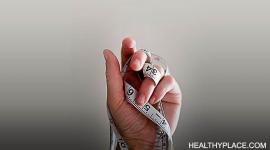What is Uncontrolled Diabetes?

Uncontrolled diabetes is diabetes that, for various reasons, isn’t properly treated and managed. The result is blood glucose (sugar) levels that soar and remain too high, a condition called hyperglycemia. For someone with diabetes, blood sugar levels should range between 70 and 140 ml/dL depending on when the reading is done. Blood glucose levels fluctuate with fasting, eating, and exercising. In uncontrolled diabetes, blood sugar climbs to 180 ml/dL or higher.
Hyperglycemia is extremely dangerous; indeed, almost every organ and system in the body is at risk for serious damage if diabetes isn’t properly managed. Uncontrolled diabetes can cause strokes, heart disease, and neuropathy (nerve damage). Knowing why uncontrolled diabetes happens can help you avoid it so you can live and feel well.
Causes of Uncontrolled Diabetes
Uncontrolled diabetes happens for a variety of reasons. Sometimes, people don’t know that they have diabetes. Type 2 diabetes can sneak up on people insidiously, with few warning signs and symptoms until blood sugar has spiked out of control. In most cases, severe hyperglycemia arising from unmanaged diabetes relates to uncontrolled diabetes type 2, although both type 1 and type 2 diabetes can become out of control.
To understand how severe hyperglycemia develops, it helps to know what goes wrong in the body when someone has diabetes. In diabetes, there is a problem with insulin in the body. Insulin is a hormone that acts as an important key, unlocking the cells of the body so that glucose can leave the bloodstream and enter the cells.
Without insulin, the glucose produced during digestion stays in the blood instead of entering the cells. Blood sugar accumulates, and if levels rise without intervention, people can become very ill.
Diabetes needs to be monitored and managed daily to ensure that blood sugar levels are stable and in the healthy range. A number of factors can cause uncontrolled diabetes:
- Improper diet and inadequate nutrition
- Illness other than diabetes that can interfere in diabetes treatment
- Inadequate physical activity
- Medications for other conditions can interfere with diabetes medication
- Wrong dose or type of diabetes medication or skipping doses of diabetes medication
- Mental health conditions, such as depression, that interfere in someone’s ability to adequately manage his or her diabetes ("Uncontrolled Diabetes and Mental Health Complications")
One or more of these factors can cause uncontrolled diabetes. If any of these applies to you, learn the signs and symptoms of severe hyperglycemia to know when you need medical help.
Symptoms and Signs of Uncontrolled Diabetes
Symptoms don’t always appear immediately when blood sugar levels begin to climb. Sometimes, diabetes becomes out of control gradually. Once you do notice symptoms of diabetes, your blood glucose might already be above 180 mg/mL and doing damage to your body. Watch for the following signs (most people won’t have all of them) that your blood sugar might be creeping ever higher:
- Excessive, unquenchable thirst
- Increased urination
- Frequent infections, especially yeast infections
- Cuts or infections that take too long to heal
- Hunger, eating more, but no weight gain
- Unexplained weight loss
- Fatigue
- Blurred vision
- Tingling or numbness in extremities
- Skin changes (tags, discoloration, infections, blisters)
- High blood pressure
- High cholesterol
- Kidney problems
- Fruity, sweet, or chemical-like breath (many describe it as smelling like nail polish remover)
- Ketoacidosis, or the accumulation in the blood of ketones, the byproduct created when the body tries to burn fat for energy; ketoacidosis is a medical emergency
These uncontrolled diabetes symptoms serve as warning signs that blood sugar is causing damage and needs to be treated immediately.
Controlling Your Diabetes
Severe hypoglycemia is frightening, and it’s wise to take it seriously. If your diabetes does become uncontrolled, it doesn’t mean that you’re doomed to face terrible health problems for the rest of your life. Uncontrolled diabetes means that blood sugar has spiked too high and that it’s time to take measures to bring it back down to healthy levels. It’s possible to regain control of your blood sugar.
Work with your doctor and other members of your diabetes treatment team to manage diabetes. Some important aspects of taking charge of this disease include:
- Monitoring your blood glucose levels throughout the day, every day by testing your blood at home with a special device
- Creating a meal plan and sticking to it
- Getting lots of physical activity
- Taking your diabetes medication and working with your doctor to monitor its effectiveness
Experts at Johns Hopkins Health System recommend keeping a log book to record your blood sugar levels and reasons for unusual spikes and dips. This allows you to see patterns and make adjustments to do more of what works and less of what doesn’t. A log book also can be a valuable tool for discussing your diabetes management with your doctor.
Avoiding uncontrolled diabetes is primarily a matter of monitoring your blood glucose levels, symptoms, lifestyle, and medications in order to remain healthy and thrive.
APA Reference
Peterson, T.
(2022, January 4). What is Uncontrolled Diabetes? , HealthyPlace. Retrieved
on 2026, January 15 from https://www.healthyplace.com/diabetes/mental-health/what-is-uncontrolled-diabetes



